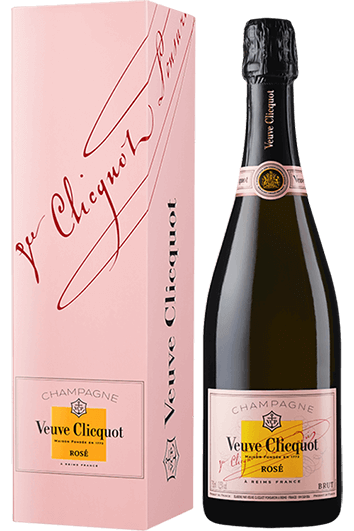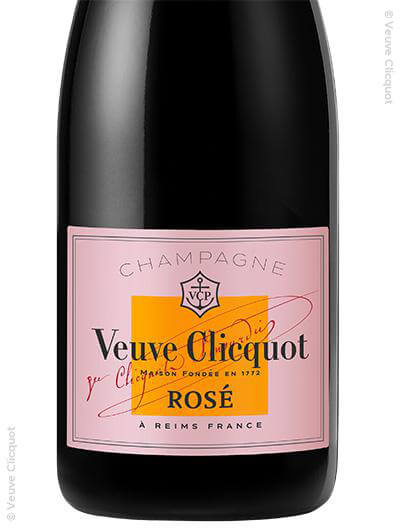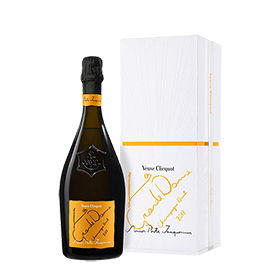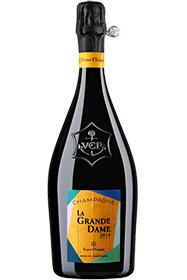
Veuve Clicquot : Brut Rose
In stock. Available for pick-up at store
- Free delivery serviceFree ground shipping in NYC 5 boroughs for orders over $150 and free ground shipping for all instock orders over $450
- Secure PaymentVisa, American Express, Mastercard...
- Guaranteed provenanceAuthenticity & Traceability of origin
Marks and reviews
 Parker
Parker J. Suckling
J. Suckling Wine Spectator
Wine Spectator Decanter
Decanter Bettane & Desseauve
Bettane & Desseauve J. Robinson
J. RobinsonDescription
The delicacy and fruitiness of a Brut Rosé champagne
The property
An emblematic reference among the great names of Champagne, the Veuve Clicquot House has built its reputation since its creation in 1772 thanks to a woman: Madame Clicquot. In a few years and at the end of the 18th century, Madame Clicquot will establish herself as the "Grande dame of Champagne" and will be at the origin of the invention of the riddling table with the motto "only one quality, the very first". World-renowned, the Veuve Clicquot Champagne House stands out with its bottles recognizable at first glance and adorned with a yellow label, inspired by the rising sun, with cuvées in a vinous style.
The vineyard
Owner of 390 hectares, the Veuve Clicquot house owns one of the largest vineyards in Champagne. This vineyard is also exceptional for its quality as it is spread over 12 of the 17 Grands Crus and 20 of the 44 Premiers Crus of Champagne.
The wine
It was in 1818 that Madame Clicquot created the very first blended rosé champagne. Even today, this Brut cuvée dosed at 9 g/L from a rigorous selection of 50 to 60 different crus seduces with its rich aromatic palette and its liveliness on the palate.
Vinification and aging
The Brut Rosé from Veuve Clicquot benefits from a minimum of 3 years aging in the house's chalk cellars.
Blend
The Brut Rosé from Veuve Clicquot is the result of a blend reminiscent of the style of the Brut Carte Jaune, namely 50% pinot noir, 20% pinot meunier and 30% chardonnay. This blend is complemented by 12% of still wine vinified in red.
Characteristics and tasting advice for Veuve Clicquot Brut Rosé
Tasting
Color
The color is a beautiful coppery orange.
Nose
Presenting an aromatic profile of great richness and complexity, this wine seduces with its generous palette of red and black fruits (cherry, strawberry, raspberry, blueberry), subtly enhanced by spicy touches such as white pepper, saffron and licorice.
Palate
Gourmet nuances of pastries (biscuit, croissant), toasted bread aromas, orange peel and gingerbread testify to its aging on lees. Structured around the emblematic pinot noir grape, this blend asserts its character with elegance and depth.
Service
This Rosé champagne is best enjoyed when served at a temperature of 8-10°C.
Storage
3 to 5 years
Food and wine pairings
Tapas, sesame biscuits, raw vegetables, lasagna, pies and bouillabaisse or even red berries, black fruits and juicy fruits ideally accompany this Brut Rosé from Veuve Clicquot.






